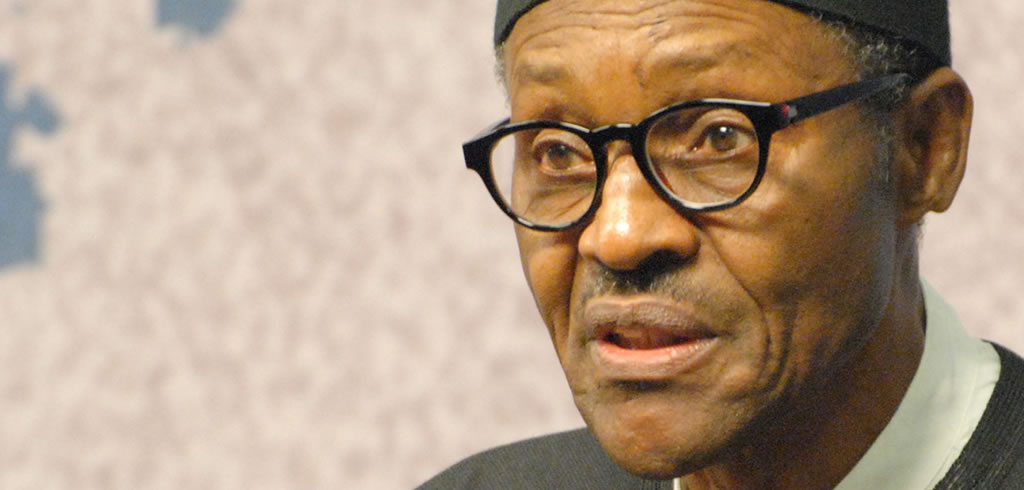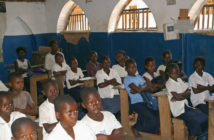Following a tense Nigerian presidential campaign, former military strongman Muhammadu Buhari secured a landslide victory in the March 28 elections, and became the first opposition figure to win power through a peaceful democratic transition since the country’s re-establishment of democracy in 1999. Despite concerns surrounding Boko Haram attacks in the northeast, eruption of post election violence, and misconduct by the electoral commission, the poll was largely deemed free, fair and, surprisingly peaceful.
Although violence by Boko Haram in northeast resulted in several deaths, the terrorist group failed to disrupt the democratic process as the citizens of Yobe, Borno and Adawama states, the insurgent group’s strongholds, showed up at the ballot in large numbers. In a region where incumbent leaders are often reluctant to give up power, Goodluck Jonathan’s graceful acceptance of defeat and speech urging his supporters to peacefully accept the result of the poll signals a deepening of democracy in Africa’s most populous nation.
The Nigerian elections are deemed a victory not just for the country, but also for the entire continent of 1 billion who will now increasingly turn to this historic election as a symbol of democratic consolidation in the African region. After all, the poll “was only the eighth time in Sub-Saharan Africa that an opposition candidate defeated the ruling party in a presidential contest after fair election”.
Throughout the continent, autocratic rulers have continuously aimed to extend their grip on power using a variety of undemocratic methods to secure dominance over their countries. However, now more than ever, “Africans are resisting their rulers, using street protests and the power of the ballot box to defend and revive democratic ideals”. Nigeria’s elections are a milestone for democracy and have raised hopes throughout Africa that such positive trends will continue in the future.
The “African Spring” continued
Last October, large swathes of Burkina Faso’s population took to the streets to protest attempts by former military dictator, Blaise Compaore, to amend the constitution to further extend his rule. Having already ruled the country for 27 years following a military coup, the rebellionforced him to resign in an event that sent shock waves across the region and sparked hopes of an “African Spring”.
Six months on, Burkina Faso is organizing its first democratic elections set for October 2015, in what will be a deciding factor for the future of democracy and stability in a nation long ruled by autocracy. While the country’s interim President, Michel Kafando, lifted the suspension onCompaore’s Congress for Democracy and Progress party to allow them to prepare for elections, a new law passed on April 8 has blocked any MP’s who supported Compaore’s unconstitutional bid to extend his rule from participating in the race. The decision will be popular with the majority of Burkina Faso’s citizens, who have long been angered by corrupt and ineffective governance.
Similar to Nigeria, where the youth make up 70% of the population, Burkina Faso’s revolution and democratic transition lies in the hands of the younger population. Many have been rallying around the image of a “national icon” and former leader, Thomas Sankara, who ruled the country from 1983 to 1987, before being assassinated by Blaise Compaore. With his revolutionary methods of governance and fight against widespread corruption, many associate Burkina Faso’s African Spring with Sankara’s own arrival to power three decades ago, and believe that now, they too can be “a generation that has taken control of its own destiny”. According to Stephanie Wolters, a Central Africa expert at the Institute for Security Studies, an African based think tank, “Burkina Faso is on everyone’s mind [and]it has changed the game in many ways”.
Half way across the Continent, boxed in between the turbulent states of Somalia and Yemen, lies Djibouti, a country that went through a wave of protests last autumn fueled by the ouster of Compaore. In 2016, the 900,000 Djiboutians will head to the polls where they will most likely be faced with the prospect of electing their leader, Ismail Omar Guelleh, for the fourth consecutive time. Commonly known by his initials IOG, the President has been in power since 1999 after succeeding his uncle, Hassan Gouled Aptidon, who had been at the helm of the country after Djibouti gained independence from France in 1977.
In an attempt to further consolidate his grip on power, IOG revised the constitution in 2010 and scrapped presidential term limits. Prior to the 2011 elections, 30,000 demonstrators came out to protest against “dictatorship, bad governance, lack of democracy and dynastic succession”. For his part, Guelleh arrested opposition leaders, dispersed the protestors with tear gas, and denied the large numbers that came out to protest against his rule. The opposition largely boycotted the elections, and Guelleh secured 80% of the vote in a campaign that was deemed“little more than an exercise in hero worship” of Guelleh.
Since then, IOG’s rule has been marred with widespread human rights abuses, including the arbitrary torture of opposition members, denial of fair public trial, restrictions on the freedom of press and widespread corruption. In addition, Human Rights Watch has condemned the government’s unconstitutional ban on public assembly and the jailing of human rights activists. Despite huge investments from the likes of China and humanitarian assistance programs funded by the US, “Djiboutian democracy is deeply flawed”, and few of the investment deals have been used to tackle the country’s unemployment, which currently stands at 60%.
However, with a new wave of democracy sweeping the continent as Africans start to break the chains of autocratic power, and opposition parties strengthen their positions in the face of discontent, we can hope to see the power of dictators over their countries fade away, as people take to the streets and polls to demand their rights to democracy. UN Secretary-General Ban Ki-moon has too raised concerns over Africa’s power hungry leaders, claiming that, “undemocratic constitutional changes and legal loopholes should never be used to cling to power.” African leaders trying to consolidate their grip on power should definitely take note.




